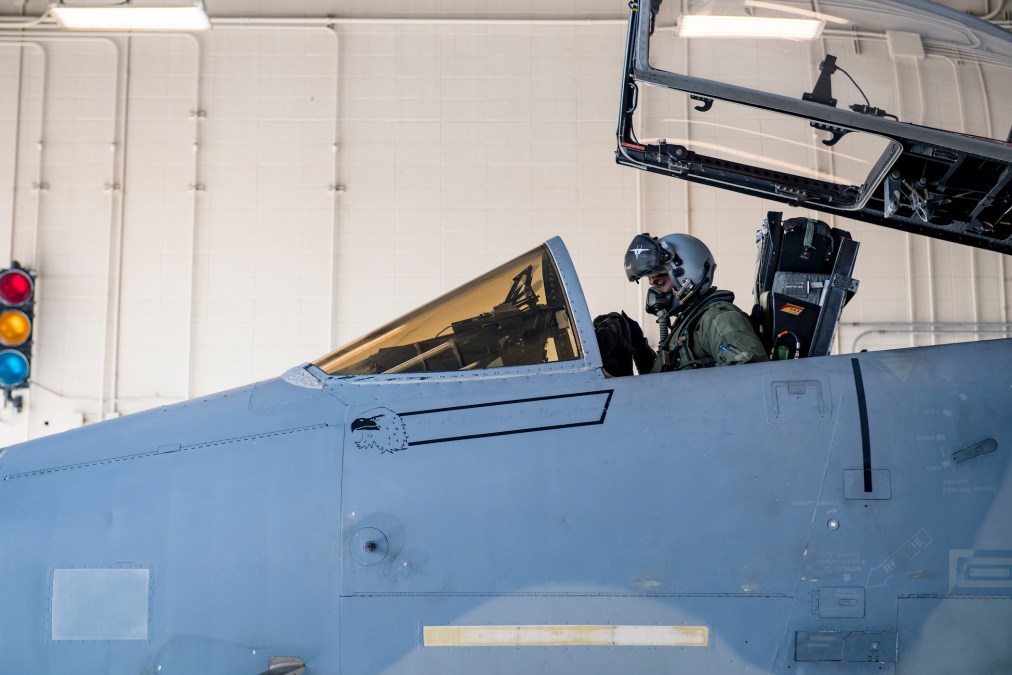DOD, Air Force aim to ‘streamline acquisition’ with latest and forthcoming JADC2 awards

The Defense Department and Air Force recently approved more than two dozen companies to compete for opportunities to provide capabilities that will ultimately enable the military’s envisioned next-generation, sensor-driven command and control setup.
Last week, the department awarded 27 companies, nine of which are based in Virginia, spots on a multiple-award contract for capabilities across domains to enable Joint All-Domain Command and Control (JADC2).
In the past, each of the U.S. military services produced and relied on its own tactical network that was not widely compatible with those of the other services — but JADC2 is the Pentagon’s modern concept to change that. Through JADC2, DOD aims to connect sensors and shooters across all the military services and allow for quicker data-sharing to drive better decision-making across one single network as the conflict landscape evolves.
The 27 businesses mark the latest of a growing group to be selected for the Air Force’s Advanced Battle Management System (ABMS) vehicle, which is meant to underpin that overarching network to move information and fully implement command and control seamlessly across land, sea, air, space, cyberspace and the electromagnetic spectrum.
“The ABMS indefinite delivery/indefinite quantity is a contract vehicle established to compete efforts within seven different categories. The ‘up to’ ceiling amount of $950 million is established per company, and the minimum order guarantee is met upon award with a detailed company capabilities report deliverable,” Air Force Spokesperson Maj. Joshua Benedetti told FedScoop on Thursday.
Currently there are 205 companies eligible to compete for work under the larger JADC2 concept — and each only in the specific categories that they were brought on for, Benedetti confirmed.
ABMS is viewed essentially as an open architecture family of systems that facilitate the operation of capabilities via multiple integrated platforms. The categories for which companies were awarded to provide specific solutions include digital architecture, standards and concepts; sensor integration; data; secure processing; connectivity; applications; and effects integration.
Locations of performance will be determined down the line and the work is anticipated to be complete by late May 2025.
Benedetti noted that this new announcement is “not tied to a specific ABMS effort, and is not a specific task order to any of the companies.” It will add approved vendors for the overall ABMS IDIQ, he said, and all requirements are competed for via the government’s fair opportunity process after the initial order.
“For example, ‘Applications’ is Category 5 on the IDIQ, so if there is a requirement for a new application team, then the Fair Opportunity process would occur to the teams on the ABMS IDIQ for Category 5,” Benedetti explained.
This structure is meant to help “streamline the acquisition process,” in the Pentagon’s view, and accelerate the maturation of innovative defense technologies.
“After the competition/evaluation period we can get a task order issued to the company faster, because they’re already approved,” Benedetti added. “This type of announcement will happen again in the future as we add additional companies to the IDIQ.”






